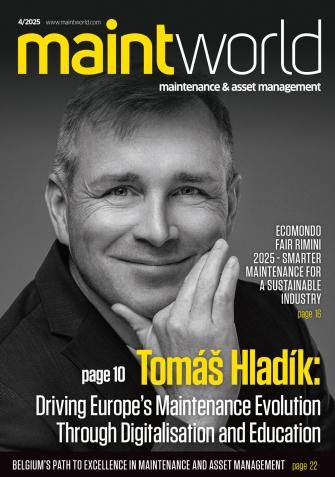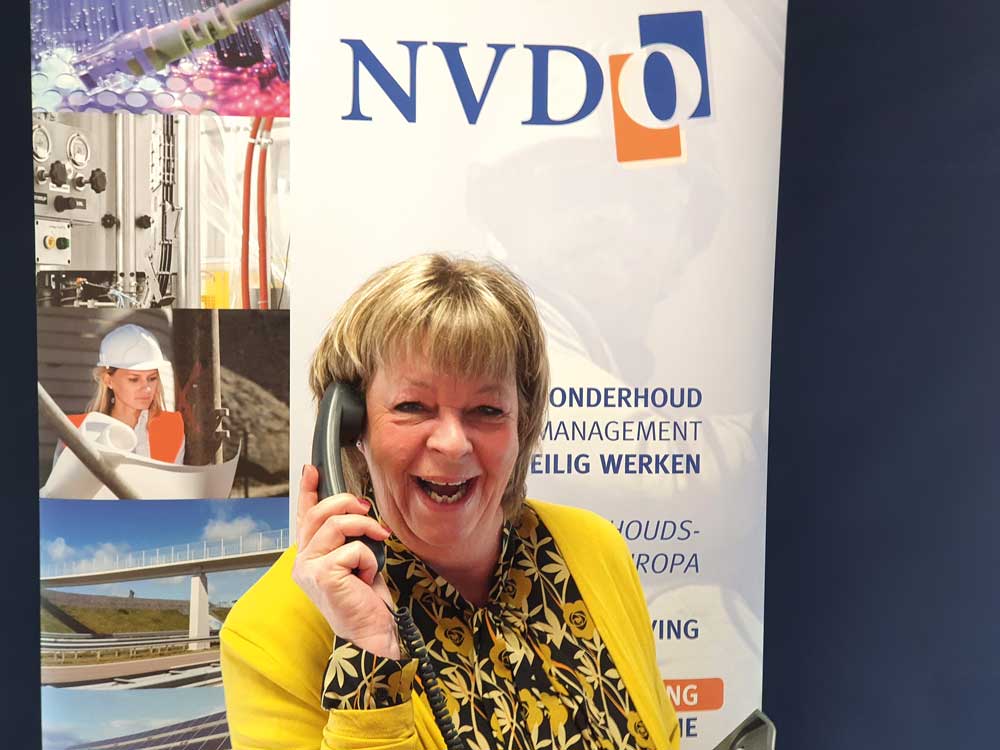NVDO: A Longstanding EFNMS Partner and Leader in Maintenance Innovation
The Dutch Maintenance Society (NVDO), a founding member of the European Federation of National Maintenance Societies (EFNMS), has been a key force in shaping the European maintenance industry for 50 years. As an active member of three EFNMS committees and the General Assembly, NVDO leads efforts that promote innovation and professional growth throughout the sector.
The Dutch maintenance market keeps growing, even with global economic challenges. It now makes up 4.1% of the country’s GDP and provides jobs for around 326,500 people—representing a 3.7% rise in 2024 from the year before, according to NVDO’s annual survey with universities and industry partners.
After slowing down in 2023, the sector bounced back in 2024, but the shortage of skilled technical workers remains a major challenge.
NVDO General Manager Ellen den Broeder notes that more than two-thirds of job openings over the past year were for technical positions, and companies are finding it increasingly difficult to attract qualified candidates.
“The tight labour market remains a major issue, especially in technical and technological roles,” den Broeder explains. “On a positive note, the proportion of women working in maintenance has risen to a record 9.9% this year—the highest level in at least eight years,” she adds.
Turnover and Talent Retention Under Pressure
According to Den Broeder, the absenteeism rate in the Dutch maintenance sector is 5.4%, closely aligned with the national average of 5.3%, reflecting stable attendance levels. Meanwhile, the NVDO Maintenance Compass report reveals a rising staff turnover rate in the sector. This is largely driven by retirements and employee dissatisfaction.
Furthermore, more professionals are leaving the maintenance field altogether, with the percentage of industry exits increasing from 28% to 39% in just one year.
“This poses challenges for the sector when it comes to training talent. With the rise of advanced technologies and the use of complex digital systems, the demand for well-trained and certified maintenance professionals is growing,” Den Broeder says.
Den Broeder emphasizes that addressing the labour shortage requires a collaborative effort “No single organization can solve this challenge alone. Public-private partnerships between government, businesses, and educational institutions are essential. NVDO is encouraged by the increasing number of such collaborations.”
Cybersecurity – a Core Priority
Den Broeder emphasizes the growing importance of training and retaining skilled professionals in the face of rapid technological change. As operational technology becomes increasingly integrated with IT systems, cybersecurity has emerged as a critical concern. Inadequate data protection can result in severe consequences, including the loss of sensitive business information, underscoring the need for proactive and robust security strategies.
She further notes that upcoming European regulations will compel companies to strengthen their cybersecurity posture. Among these is the Cyber Solidarity Act (Regulation EU 2025/38), a key legislative measure designed to bolster cybersecurity resilience across the EU. It introduces enhanced threat detection capabilities, improved coordination of incident response among member states, a unified risk management framework for EU institutions, and the creation of an Interinstitutional Cybersecurity Board to oversee implementation. The regulation will also introduce mandatory cybersecurity standards that companies must comply with.
Building a Resilient, Skilled Workforce Together
In response to these emerging challenges, NVDO is intensifying its support for the maintenance sector. The organization offers targeted training programmes, upholds certification standards, and promotes lifelong learning to ensure professionals stay current with technological advancements. In parallel, NVDO actively collaborates with industry stakeholders to raise cybersecurity awareness and develop practical frameworks to help companies protect their digital infrastructure and meet evolving regulatory requirements.
Den Broeder hopes that the EFNMS with its committees and partnerships can contribute to the common European-wide problem in the maintenance industry: “Tackling the shortage of skilled technical workers is a shared European challenge. NVDO is keen to explore European solutions that could add significant value to our members.”
Text: Nina Garlo Photos: NVDO
Dutch maintenance society (NVDO)
• NVDO represents 326.500 maintenance professionals in the Netherlands.
• The Dutch maintenance sector has an estimated value of €30-35 billion, accounting for about 4% of the country's GDP.
• NVDO serves as Europe’s largest maintenance platform, supporting businesses and professionals in Asset Management.
• The organization promotes knowledge transfer, advocacy, and networking to enhance maintenance efficiency.
• NVDO works closely with various stakeholders (fe: the government) to drive innovation and best practices.
Dutch Industrial Maintenance Market Set to Reach $9.97 Billion by 2032, Powered by Innovation and Steady Growth
The Netherlands' industrial maintenance market is on a steady growth trajectory, projected to reach nearly USD 10 billion by 2032, with a compound annual growth rate of 2.7%. Despite challenges like high labour costs, the market continues to grow as companies embrace the benefits of digitization and automation.
Key trends include the rise of predictive maintenance using IoT for real-time monitoring, as well as targeted workforce upskilling initiatives to meet demand for specialized MRO (Maintenance, Repair, and Operations) services.
The Dutch government actively supports this shift through strategic policies and investments:
• Green Deal Industrial Plan: Part of the EU’s broader green strategy, it promotes clean tech and reduced carbon emissions in which NVDO contributes
• Industrial Decarbonization Scheme: A €750 million EU-backed initiative encouraging fossil-free industrial processes.
• Vision on Industry Policy:
A long-term focus on digital transformation and sustainability to boost competitiveness.
Sources: Polaris Market
Research, www.eerstekamer.nl






![EMR_AMS-Asset-Monitor-banner_300x600_MW[62]OCT EMR_AMS-Asset-Monitor-banner_300x600_MW[62]OCT](/var/ezwebin_site/storage/images/media/images/emr_ams-asset-monitor-banner_300x600_mw-62-oct/79406-1-eng-GB/EMR_AMS-Asset-Monitor-banner_300x600_MW-62-OCT.png)



